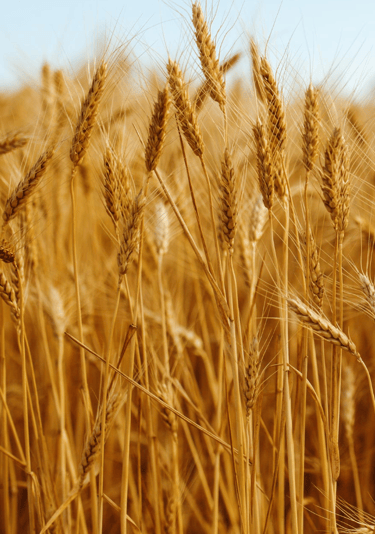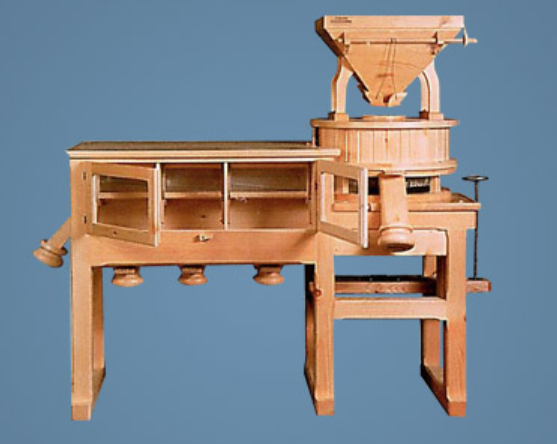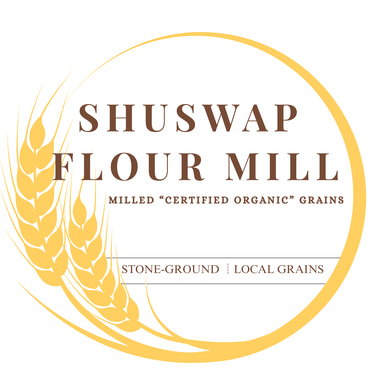Welcome to Shuswap Flour Mill !
At Shuswap Flour Mill, we produce freshly milled stone-ground organic flour, crafted with local grains for the Shuswap community.
Our Artisan Milling Process
Local Ingredients, Global Impact
We are dedicated to using high-quality, organic grains sourced locally to ensure that every bag of flour meets our customer's expectations for flavor and purity.
Our Ordering System : How It Works and Why It Matters
The Shuswap Flour Mill project operates as part of a non-profit organization ( F.R.I.E.S. ) dedicated to strengthening our local food system. By keeping our flour within the community, we ensure that the food grown here nourishes the people who live here. Every order taken directly from a neighbour reinforces a network of trust, resilience, and shared purpose.
Our system is simple—but it reflects something much bigger. When we choose direct sales over distant distribution, we keep food dollars circulating locally. When we meet customers face-to-face at markets or coordinate a pickup with someone just down the road, we create relationships as real as the food we produce. When we avoid shipping, we reduce our environmental footprint while investing in a food model that prioritizes people over profit.
Ultimately, our ordering system is not just a method of distribution—it is a tool for community building. It is how we connect growers, millers, and families. It is how we support local agriculture in a way that is transparent, sustainable, and rooted in place. It is one small but meaningful step toward a stronger, more resilient local food economy for the Shuswap.
MILLED TO ORDER - TASTE THE DIFFERENCE
Get our flour :
Nature's Bounty
1257 Trans - Canada Hwy, Sorrento, BC
Hours : Wednesday pick-up
Shuswap Flour Mill
2773 evans rd. Celista BC
Hours : Wednesday pick-up
Contact us : Message us via our website here or email to place your order.
Send your payment by e-transfer to thefriessociety@gmail.com
Deadline: Order by Monday at 5 PM for Wednesday pick-up.
Pickup your order at one of our drop off locations :
Nature's Bounty in Sorrento or our Drop Box in Celista
North Shuswap flour mill will help to improve local food security by Jim Cooperman
Given the potential for major disruptions to the supply system from climate chaos, as well as from political and economic instability, food security has become a major concern in the twenty-first century. To address this issue locally, farmer Jade Shamen and his partner Isabelle along with a farming couple from Salmon Arm, have formed a new organization, FRIES (Food Resources, Infrastructure and Education Society).


To achieve their ambitious goals, one of their first projects is the development of a local flour mill, to provide healthy, organic stone ground flour from locally grown, heritage grains.
Full Article : https://shuswappassion.ca/shuswap/north-shuswap-flour-mill-will-help-to-improve-local-food-security/
photo by Jim Cooperman
About Micro Mills
by jade shamen
There is a project in Celista that is combining modern knowledge and machinery with heritage and ancient grains to help rebuild a sustainable and resilient food system.
Heritage grains are more drought resistant that modern varieties, grow without chemical inputs, give back to the soil, and are nutritionally superior.
They store better, and last but not least, taste better.
Shuswap Flour Mill is the central part of this, as it takes cleaned grain from local fields and produces flour that bakers can turn into bread and other food items.
The flour mill began operating in early April, and products will be available in June.
In May samples are being sent out and flour blends formulated.
The flour mill uses granite millstones, which do not heat up when making flour.
This keeps the nutrients intact.
Heritage grains produce high quality flours for making bread and other baked goods.
They fell out of common use when the industrial model of farming took over, as they did not
yield as much and were harder to process in the high speed large volume industrial system.
Heritage and ancient grains grow up to 1.7 meters tall, have large root systems,
and do not need chemicals to thrive. The deep large roots help
them withstand dry conditions and access more nutrients than modern grains.
The large amount of straw they produce helps improve the soil.
Modern wheat varieties usually stand about 60 to 120cm tall and will not grow without chemicals.
Red Fife is a wheat that originated in Ontario in 1840, and remains a favourite of Canadian Bakers.
Spelt is one of 4 ancient grains, and is considered the best tasting of all grains. It is lower in gluten and used sparingly in bread recipes. It is a hardy grain still very valuable today.
There used to be over 25,000 flour mills in North America, and that number has dropped to around 200.
Of those 200, just 20 of them produce 94% of all the flour.
Centralized and industrial food systems, using genetically altered and plants bred for high yield, is a fragile system highly dependant on chemical inputs. Because of the toxic effects on our environment and the people eating food produced this way, it is time to end the industrial farming experiment.
De-centralizing our food system would increase food security for everyone.
Consuming fresh, naturally grown, locally processed food, is a healthy, tasty, and environmentally responsible way to eat. Micro breweries have set an example of how small craft businesses can provide a unique and delicious product. We see our future food system made up of many small farms and food processing businesses delivering high quality, nutritious, foods.








Partnership Opportunity
We are looking for more local farmers to grow wheat for the Flour Mill—supplying our mill with community-grown grain and strengthening our regional food system.




